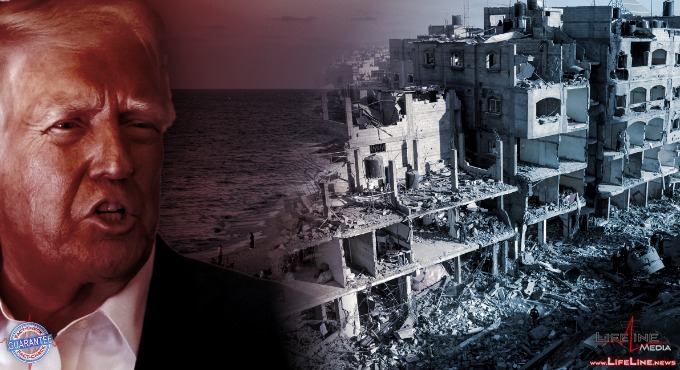Controversial Proposal and Immediate Reactions

FACT-CHECK GUARANTEE
Political Tilt
& Emotional Tone
The article presents a critical view of Trump’s proposal, indicating a liberal bias.
Generated using artificial intelligence.
The emotional tone is negative, reflecting concern and criticism over the implications of Trump’s plan.
Generated using artificial intelligence.
Updated:
Read
Donald Trump, the U.S. President, has ignited controversy with his proposal to transform Gaza into the “Riviera of the Middle East.” Announced during a press briefing on February 4, 2025, Trump’s plan involves turning Gaza into a prime real estate venture under U.S. control. This notion has sparked widespread uproar, with critics arguing that it trivializes a deeply entrenched geopolitical crisis, reducing it to a mere real estate deal.
International leaders and humanitarian organizations are raising their voices against this approach, which seems to overlook the intricate historical and humanitarian issues woven into the conflict’s fabric. Trump’s vision involves relocating over two million Palestinians, a suggestion fraught with controversy amid the ongoing turmoil in Gaza. The region, already battered by Israeli airstrikes, has seen at least 47,000 Palestinian casualties and faces severe infrastructure damage.
Complexities and Global Response
The humanitarian catastrophe is stark. Gaza is buried under an estimated 50 million tons of debris, according to United Nations reports, compounding the already daunting rebuilding challenge. Trump’s proposal has not only ruffled feathers abroad but also sent shockwaves through his own camp. His National Security Adviser has distanced official policy from Trump’s bold declarations, affirming America’s dedication to a two-state solution.
Both domestic critics and international allies are urging diplomatic avenues over commercial ventures. They emphasize the need for nuanced understandings of the situation on the ground, rather than reducing it to profit-driven opportunities. Layered atop this complex scenario are ongoing discussions between Hamas and Israel regarding hostage exchanges.
Hamas has announced intentions to release hostages in return for Palestinian detainees, while accusations fly against Israel for allegedly breaking ceasefire agreements. These developments add layers of complexity to Trump’s proposal, highlighting the operational hurdles in an already volatile region. International pushback against Trump’s idea is overwhelming, pointing out significant obstacles any such initiative would face in Gaza.
The global community’s skepticism casts doubt on the viability of Trump’s vision, shifting focus toward sustainable solutions grounded in diplomacy and humanitarianism. As events continue to unfold, world leaders keep a watchful eye on how Trump’s proposal might impact Palestinian lives and broader Middle Eastern stability. In this intricate dance of diplomacy and dreams of development, Trump’s suggestion stands at odds with the realities on the ground.

Join the discussion!
Be the FIRST to comment on ‘TRUMP’S BOLD Plan: Turning War-Torn Gaza into the RIVIERA of the Middle East Sparks Global Outrage’